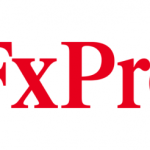Trader Charged With Spoofing Market Loses Dismissal Bid

The first high-speed trader charged with a method of market manipulation known as spoofing lost a bid to dismiss the case based on an argument the new law is too vague to be enforced.
Michael Coscia was indicted last year under a federal statute tied to the 2010 Dodd-Frank financial industry reform legislation. He was charged with six counts of spoofing — the entering of buy and sell orders on a commodity exchange with the specific intent to cancel those orders before they’re filled.
Traders engaging in spoofing profit by causing market movement with an initial flurry of orders, spiking them, and then placing new orders at the more-desirable prices.
Coscia, of Rumson, New Jersey, allegedly reaped almost $1.6 million over three months of such illegal trading in 2011, Chicago U.S. Attorney Zachary Fardon said when the charges were announced.
The Panther Energy Trading LLC principal pleaded not guilty to the spoofing allegations and six counts of commodities fraud. His attorneys had asked U.S. District Judge Harry Leinenweber to dismiss the case, arguing the conduct it prohibited was unclear and that spoofing has no settled meaning in the futures industry.
Prosecutors countered there could be no real debate over whether Coscia’s conduct was barred by law.
Leinenweber said the government’s allegations that Coscia intended to cancel his orders are sufficient at this early stage of the case to proceed. The judge also let the fraud charges go forward.
Coscia’s lawyer, Steven Peikin of Sullivan & Cromwell LLP in New York, declined to comment on the court’s decision.
Each spoofing count carries a maximum sentence of 10 years in prison and a $1 million fine. Commodities fraud is punishable by a sentence of as long as 25 years and a $250,000 fine.
Source: Bloomberg – Trader Charged With Spoofing Market Loses Dismissal Bid





























